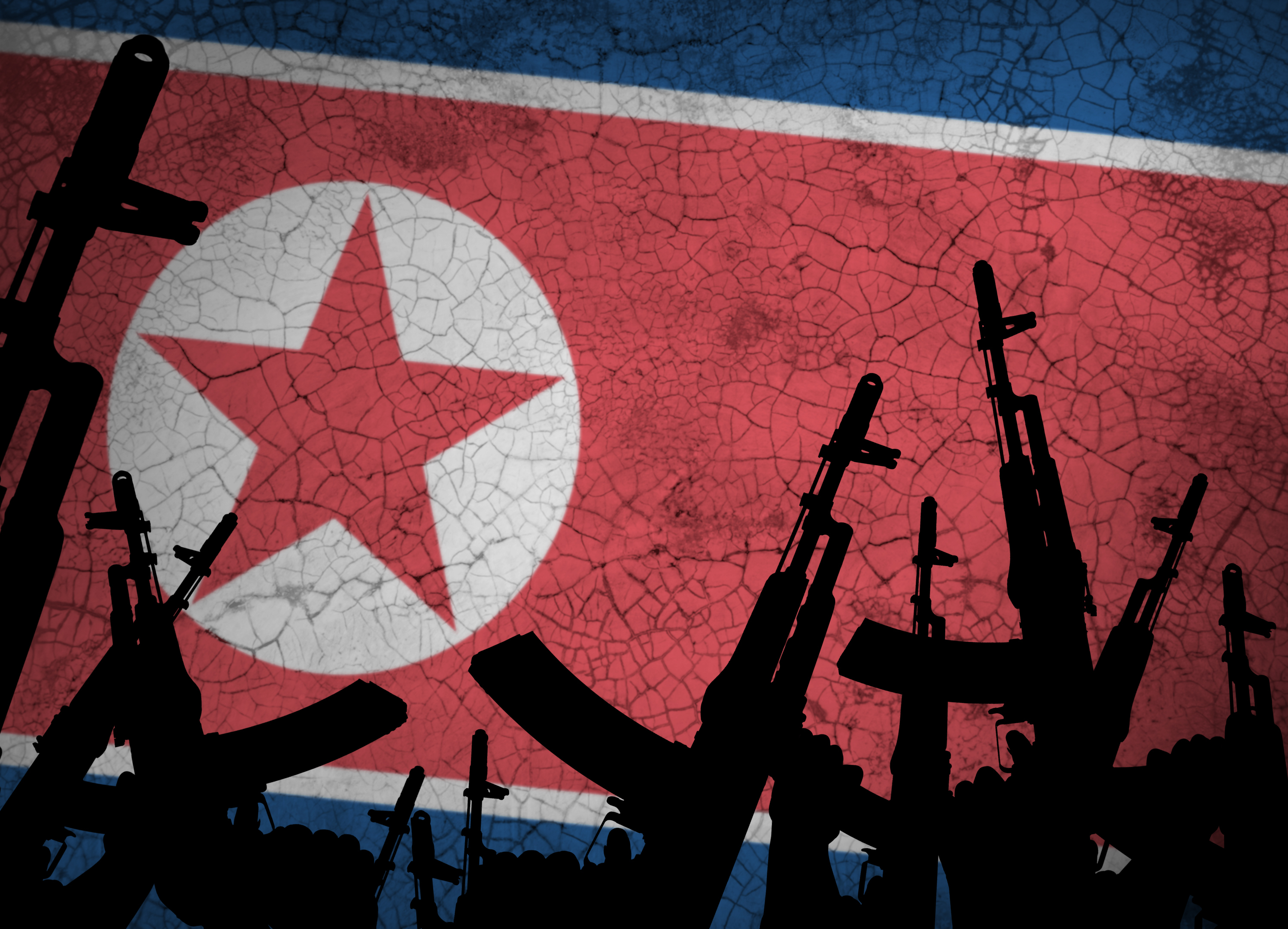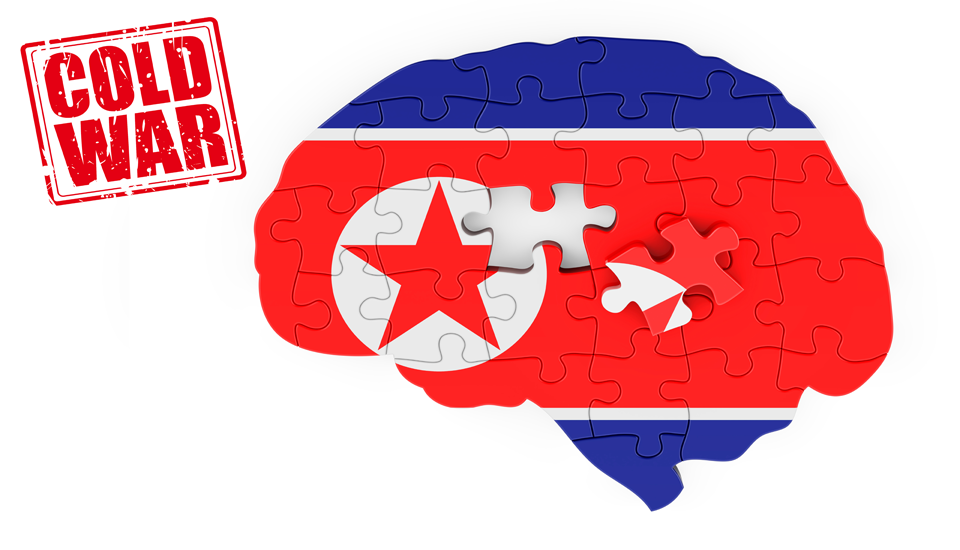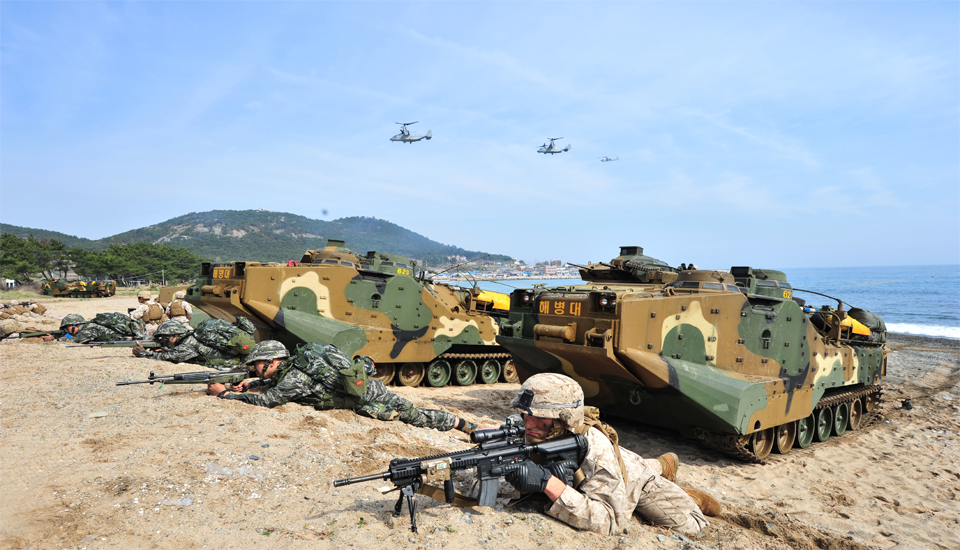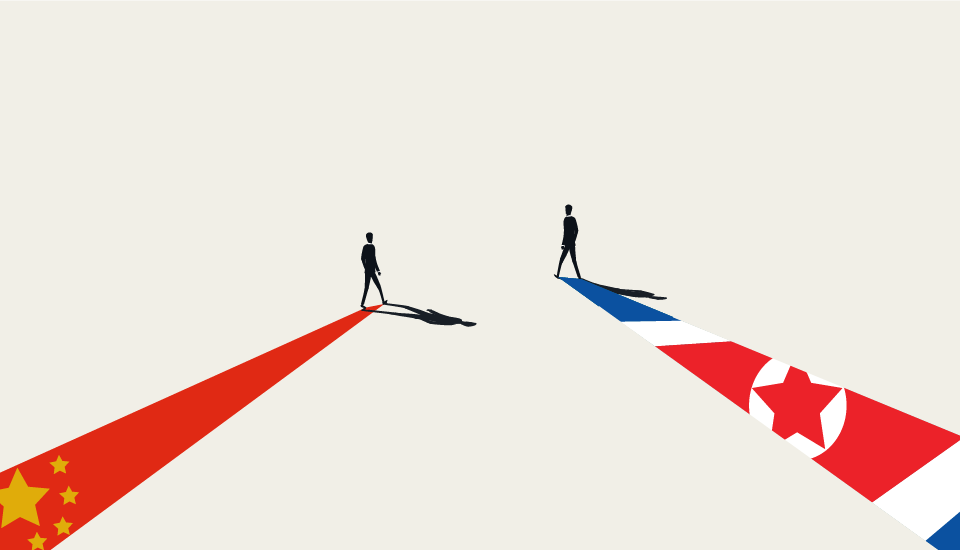
This month’s NK Update covers North Korea’s plenary government meetings, the Military Parade to mark the 75th anniversary of the founding of the regime’s military, and the strengthening East Asian security arrangement to tackle the North Korean threat.
Despite efforts to denuclearize North Korea, progress has been hindered by the North Korea’s increased arms buildup and the reinforced security measures of South Korea, the US, and Japan. As a result, an arms race and security dilemma have intensified in the region. In February 2023, North Korea held several plenary government meetings to set annual goals for economic development, and a military parade to mark the 75th founding anniversary of the Korean People’s Army. Meanwhile, South Korea, the United States, and Japan strengthened their East Asian security arrangement by conducting joint air drills, introducing enhanced military measures, and holding trilateral dialogues to deal with North Korea’s nuclear and missile threats. However, North Korea's missile launches on February 18 sparked international responses and raised regional security concerns. The United Nations Security Council condemned the launches, while Japan and South Korea also expressed their concerns.
North Korea held Plenary Meetings and Military Parade
At the beginning of the month, a series of plenary government meetings were held following the Sixth Plenary Meeting of the Eighth Central Committee (C.C.) of the Workers’ Party of Korea (WPK), held from December 26 to 31, 2022, to set the annual goals for 2023. As discussed in the last NK Update, the report of the Sixth Plenary Meeting of the Eighth C.C. of the WPK defined 2023 as a year of significant progress for accomplishing the five-year plan for national economic development. To discuss the issue of carrying through the decision of this meeting, the Enlarged Plenary Meeting of the C.C. of the Socialist Women’s Union of Korea and the Enlarged Plenary Meeting of C. C. of the Union of Agricultural Workers of Korea on February 1 and the Plenary Meeting of the Standing Committee of the Supreme People’s Assembly (SPA) and the Enlarged Plenary Meeting of the C.C. of the Socialist Patriotic Youth League, on February 2, took place. Notably, SPA standing Committee adopted of laws of the DPRK to legally guarantee the implementation of the resolutions of the WPK’s Eighth Congress of 2021 and the Sixth Plenary Meeting of the Eight C.C. of WPK.
On the other hand, Kim Jong Un participated in a military-related meeting and North Korea’s military parade. On February 6, the Enlarged Meeting of the Eighth Central Military Commission of the WPK was held. Kim Jong Un led the discussion on the issue of constantly expanding and intensifying the Korean People’s Army’s operation and combat drills to cope with the current situation and more strictly perfecting war readiness, and the issue of newly modifying some articles of the army’s internal regulations as required by the developing reality. Meanwhile, to mark the 75th founding anniversary of the North Korean army, the Korean People’s Army (KPA), the military parade featured North Korea’s latest nuclear technologies, including tactical and long-range cruise missiles and intercontinental ballistic missiles (ICBMs). With the phrase, “Nuke for nuke and an all-out-confrontation for an all-out-confrontation,” Kim Jong Un emphasized “the tradition of loyalty and patriotism handed down by the forerunners” and showed off “the development of the Korean-style defense.” On the other hand, about the question on the military parade, Ned Price, a spokesperson for the US department of state, dismissed the parade as “propaganda exercises” and reaffirmed that the US goal remains the same—the complete denuclearization of the Korean Peninsula.
Strengthening East Asian Security Arrangement to Tackle North Korean Threat
South Korea, the United States, and Japan strengthened the East Asian security arrangement centered on bilateral and trilateral cooperation to facilitate Alliance discussion on deterrence and response option to deal with the North Korean nuclear threat. First, regarding South Korea-US cooperation, the two countries introduced enhanced military measures to counter North Korea. On February 1, South Korean and US Air Forces conducted their first joint air drill of 2023, deploying US strategic assets. The two countries will continue to strengthen joint drills with the US B-1B strategic bombers and F-22 and F-35B fighters to strengthen the capabilities and posture to respond decisively to North Korean nuclear and missile threats and boost South Korean people's confidence in US extended deterrence. Meanwhile, on January 31, South Korean Minister of National Defense Lee Jong-Sup and US Secretary of Defense Lloyd J. Austin III announced a joint statement, reaffirming that the two sides will make significant progress toward completion of the Tailored Deterrence Strategy modification and will hold the Deterrence Strategy Committee Table-top Exercise (DSC TTX) in February. Following this statement, on February 22, two countries conducted the eighth DSC TTX to discuss the possibility of North Korea's use of nuclear weapons and the potential options to respond to it. This was the first DSC TTX to take place during the Yoon Administrative after two countries promised an annual TTX during the 54th US-South Korean Security Consultative Meeting of November 2022.
Second, in terms of trilateral cooperation between South Korea, the US, and Japan, they held the first trilateral dialogue of 2023 in the form of a joint press meeting. They reaffirmed the importance of trilateral coordination in dealing with North Korea's nuclear and missile activities and emphasized the need for concerted efforts of the international community. The leaders committed to responding firmly to any North Korean provocation and working towards complete denuclearization while also cutting off revenue supporting North Korea's weapons of mass destruction development through sanctions against its illicit cyber activities, one of the significant revenue generators. They reiterated their openness to dialogue and urged North Korea to return to denuclearization talks while expressing deep concern over the human rights situation in North Korea. The three leaders agreed to strengthen trilateral cooperation, including real-time information sharing, to respond to North Korea's continued provocation.
Third, the South Korean Ministry of National Defense released the 2022 Defense White Paper, referring to the North Korean regime and its military as "our enemy." The document elaborates on the determination to strengthen the military's capabilities and respond forcefully to provocations while remaining committed to "peace through force" in order to secure long-term peace. The white paper properly represents the military industry's efforts to put the government's policies on the Indo-Pacific strategy and a solid US-South Korean Alliance into action.
North Korea’s Missile Launches: International Responses and Regional Security Concerns
On February 18, North Korea fired an ICBM into the East Sea, the first in three months since November last year and the first this year. The ballistic missile was launched at a high angle, and after more than an hour, it fell into the sea about 200 km west of Oshima, Hokkaido, inside Japan’s Exclusive Economic Zone (EEZ). In response, the US National Security Council spokesperson Adrienne Watson stated that North Korea’s missile launches demonstrated the country’s priority on its weapons programs over its people, even though they do not pose an immediate threat to the US or its allied countries. Meanwhile, the Japanese Prime Minister’s office held a Ministers’ Meeting of the National Security Council. Participants emphasized the international cooperation between Japan and the US and among Japan, the US, and South Korea . Likewise, during the G7 Foreign Ministers’ Meeting, the members condemned North Korea’s launch as a blatant violation of UN Security Council resolutions and threatened regional and international security. On February 20, North Korea launched two more short-range ballistic missiles off its east coast. Wang Wenbin, a spokesperson for the Chinese Foreign Ministry, reiterated China’s position on the Korean Peninsula’s issues as following the dual-track approach and the principle of phased and synchronized steps and playing a constructive role in promoting their political settlement. Regarding China’s role, on February 22, Japan and China held the Security Dialogue in the form of 2+2. Japanese government firmly urged China to assume responsibility for safeguarding the international community’s peace and security. In a similar vein, the Japanese government highlighted the UN’s importance in molding mainstream international public opinion and emphasized the need to improve UN functions of the UN, especially reforming the Security Council.
As the 2022 Defense White Paper implied, South Korean government has taken a strong stance against North Korea’s recent missile launches and has condemned them along with the international community. South Korea, the US, and Japan have also continued to strengthen their security arrangement and cooperation to address the North Korean nuclear threat. While there have been some positive steps in terms of trilateral dialogues and joint drills, the recent missile launches have raised regional security concerns, and the South Korean government remains committed to working towards complete denuclearization and responding firmly to any North Korean provocation. The situation remains complex and requires continued vigilance and cooperation from all parties involved.■
■ Minah Kang is a Ph.D. candidate in the Department of Political Science at Johns Hopkins University. Her research interests include International Influences on Domestic Politics, State-Society Relations, Political Exclusion, Identity and Otherness, Global History of Cold War and East Asia, and Korean War. She has obtained her B.A. Political Science and International Relations & Women’s studies and M.A. in Political Science and International Relations at Ewha Womans University.
■ Typeset by Junghoo Park, Research Associate
For inquiries: 02 2277 1683 (ext. 205) | jhpark@eai.or.kr

North Korea’s Outlook on the New Cold War
Won Gon Park | March 09, 2023

Will Spring Ever Come? Security Landscape of Northeast Asia in 2023
Kyung-joo Jeon | March 06, 2023

China’s Stance on North Korea’s “New Cold War” Narrative
Dong Ryul Lee | February 27, 2023
LIST